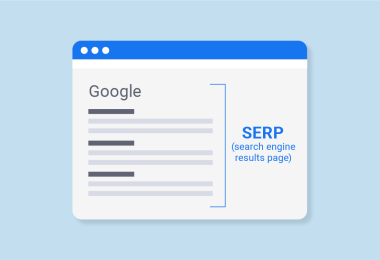- Why Is Online Reputation Management Important?
- Enhancing Brand Perception Through ORM
- The Synergy of Social Media and ORM
- How to Monitor Your Brand’s Online Reputation
- Responding Appropriately to Online Reviews
- How to Get More Positive Reviews
- How to Address Negative Reviews
- Combatting Negative Search Results
- Automating Online Review Responses
- Promoting Positive Brand Content Proactively
- Online Reputation Management During Crises
- Choosing the Right Online Reputation Management Software
- Creating a Brand Resilience Strategy
- Maintaining Your Online Reputation Management Efforts
- To Sum Up
Online reputation management is the process of monitoring, managing and controlling your brand’s reputation and presence. With the rise of search engines, online review sites and social media platforms, your brand’s reputation is heavily influenced by what comes up when someone searches for your company or product online. That’s why having an effective online reputation management strategy is crucial to building trust, attracting customers and safeguarding your brand in SERP.
In this comprehensive guide, we’ll cover everything you need to know about managing your brand’s online image and reputation as a beginner, including:
- The importance of online reputation management
- How to monitor brand mentions and sentiment
- Responding appropriately to reviews
- Promoting positive brand content
- Managing crisis situations
- Choosing the right online reputation management software
- Maintaining consistent, ongoing reputation management efforts
Let’s dive in!
Why Is Online Reputation Management Important?
Your brand’s online reputation heavily impacts potential customers’ opinions and willingness to purchase from your business. In fact, 97% of consumers read reviews before visiting or buying from local businesses. When they search for your brand, the content that comes up shapes their brand perception too.
Positive online reputation helps:
- Build trust and credibility with customers
- Generate word-of-mouth referrals
- Increase sales conversions and repeat purchases
- Attract quality talent if you’re hiring
- Command higher prices compared to competitors
- Recover faster if crises occur
- On the other hand, negative online reputation leads to:
- Loss of customer trust in your brand
- Declines in revenue and market share
- Requirement to lower prices due to lack of perceived value
- Difficulty attracting and retaining top talent
- Slower or lack of recovery from PR crises
Clearly, actively managing your brand’s online reputation is essential to long-term business growth and resilience.
Enhancing Brand Perception Through ORM
Your brand’s image isn’t merely about avoiding negativity; it’s also about consistently building a positive image. Enhancing brand perception involves showcasing your brand’s strengths, achievements, and positive customer experiences.
Through content like testimonials, success stories, and positive consumer feedback, on your social media account, you can instill trust and credibility among your target audience. Another excellent strategy is leveraging influencers who align with your brand’s values. They can amplify your brand’s positive aspects to their followers, creating a ripple effect of positivity.
Moreover, online reputation management services often offer tools that track sentiment. This means you can see in real-time how your brand perception shifts, allowing you to pivot your strategies accordingly.
The Synergy of Social Media and ORM
One can’t emphasize enough the influence of social media on a brand’s positive reputation here. Your social media account acts as the face of your brand. Ensuring it radiates positivity, customer engagement, and responsiveness is essential. This doesn’t just mean regular posting, but also actively engaging with followers, addressing concerns, and sharing user-generated content that promotes your brand positively.
Every interaction on your social media account shapes the public’s view of personal brand. This is where online reputation management services come in. These services not only monitor what’s being said about your brand but also provide actionable insights on how to address any concerns or negative search results that may arise.
How to Monitor Your Brand’s Online Reputation
To manage online reputation, you first need to monitor what’s out there about your brand across channels. This gives you the data to understand your current reputation status and take appropriate action to shape it. Clearly, you can’t afford to ignore the power of online reviews. Businesses with more positive online reviews grow faster according to studies. Developing an online reputation management strategy for properly monitoring, responding to and leveraging negative online reviews is essential today.
Set Up Reputation Management Software
The easiest way to monitor brand mentions is with online reputation management software or tools. These track social media platforms, news sites, forums, review sites and more to collect any content mentioning your brand, products or business name.
Online reputation management tools have grown in sophistication. Beyond just tracking mentions, modern tools can offer in-depth analytics, providing a holistic view of your brand’s online reputation.
For instance, they can:
- Identify emerging trends related to your brand.
- Highlight areas of improvement based on customer feedback.
- Offer predictive insights, anticipating potential reputation challenges before they become significant issues.
Popular all-in-one software options include:
- Rush Analytics: Monitors SERP for brand mentions. It allow yout to track your brand reputation in search engine results and to react to negative campaigning in time.
- Birdeye: Scans 200+ channels and integrates with popular software like HubSpot. Provides sentiment dashboards.
- Sprout Social: Monitors keywords and brands across social media with custom reporting.
- Mention: Tracks brand mentions and analyzes online reputation across the web.
Remember, a reactive approach to ORM can leave you scrambling. Using an online reputation management tool ensures you’re not only responsive but also a step ahead in understanding and molding your brand’s digital narrative.
Look for tools that simplify reporting with sentiment scores over time. This helps you spot trends and emerging issues early. Integrations with platforms like Google and Facebook are useful too.
Search Manually
Even with automation tools, you’ll need to manually search for your brand regularly as well. Try these tips:
- Google your company, executives and product names. Scan through results pages.
- Review social media feeds and hashtags related to your brand.
- Sign up for Google Alerts on important brand name keywords.
- Check customer review sites like Yelp and niche or industry-specific forums.
- Use incognito browsing to avoid personalized search results.
Pay attention to page position – reviews or articles on the first few pages of Google have more visibility than later results.
Analyze Search Rankings
Look at where your website and other owned properties rank in branded keyword searches. Low search rankings likely mean you need to optimize with content promotion and SEO.
Higher rankings for negative reviews or third-party articles indicate those should be your first priorities to address.
Monitor Internal Metrics
Your online reputation management data will be more robust if you incorporate internal metrics like:
- Customer support tickets and common complaints
- Customer churn rate
- Sales performance fluctuations
- Employee satisfaction surveys
This gives context to the behind-the-scenes story your external social media monitoring might miss. You can connect dots between changes in revenue or customer retention and spikes in negative online mentions too.
With the right monitoring setup, you can rapidly respond to emerging opportunities and threats before lasting reputation damage. Now let’s look at managing the most common element of online brand reputation – customer reviews.
Responding Appropriately to Online Reviews
Online customer reviews on sites like Yelp, Google, Facebook and Amazon heavily influence buying decisions. These reviews also directly impact your search rankings. That’s why you need to proactively manage your online customer reviews as part of your reputation strategy.
How to Get More Positive Reviews
The easiest way to improve online business reputation is getting more positive online reviews. Make it simple for happy customers to leave reviews with:
- Review links in thank you emails and receipts
- Review links on your website and social media
- Polite review requests at checkout or account signup
Offer discounts, free products or entries into giveaways as incentives. Just avoid paying for reviews which is against review site guidelines.
Knowing how to get more positive online reviews takes effort, but pays off with exponential growth in credibility and new business. Focus on over-delivering on customer service so you have a steady stream of satisfied customers eager to share their experiences.
How to Address Negative Reviews
No business is immune to negative reviews. Dissatisfied customers will always exist no matter how hard you try. But how you address those negative experiences and customer feedback matters greatly for your business online and reputation.
The wrong approach can make a bad situation worse. But the right response can turn detractors into brand advocates. Follow these online reputation management best practices when responding to negative comments or online reviews:
- Respond promptly – within 24-48 hours optimally. The quicker the response, the better.
- Thank the customer for taking the time to leave feedback. Empathize but avoid being defensive.
- Take responsibility if the complaint is valid and offer a remedy like a refund or discount.
- If the review seems fake or intentionally damaging, you can report it to the review site without responding publicly.
- Ask the customer to contact you directly if they’d prefer to resolve the issue privately.
- For repeated complaints, re-evaluate internal processes that may be causing common issues.
With patience and care, you can often turn detractors into brand advocates with your response. But even if you can’t, your professionalism and focus on resolution demonstrates responsibility and commitment to your customers.
Combatting Negative Search Results
Encountering negative feedback in search results is a common challenge many brands face. These unflattering mentions can range from critical blog posts, unsatisfactory reviews, or unfavorable news stories. Addressing these requires a mix of tact, professionalism, and genuine concern.
One effective method is through Search Engine Optimization (SEO). By promoting positive content about your brand and using strategic keywords, you can push down negative review in search engine rankings. This is where an online reputation management tool can play a crucial role. These tools can identify which negative reviews are hurting your brand the most and help you devise strategies to counteract their impact.
Automating Online Review Responses
Manually responding to reviews across all platforms takes immense time and effort. Look into tools that help automate and simplify the process:
- Review management software: Features like review alerts and bulk response improve efficiency. Some even auto-publish replies for you.
- Social media management tools: Schedule posts and responses across all social media accounts from one dashboard.
- Email marketing software: Send customized review request and response templates using saved sequences.
The less manual work needed to monitor and respond to reviews, the easier it becomes to stay up-to-date and provide prompt, personal responses. The right automation balances efficiency with personalization. With the workload reduced, you can focus on crafting detailed responses to reviews that need more attention.
Online reviews aren’t going away anytime soon. Paying attention and responding thoughtfully is one of the most valuable investments you can make in managing your online reputation over the long-term.
Promoting Positive Brand Content Proactively
Don’t make digital reputation management completely reactionary. Proactively promote positive brand content to shape what consumers see about you online.
Optimize Owned Properties
Make sure your website, blog and social media presence highlight your brand’s strengths, achievements and values prominently. Keep imagery, messaging, navigation and calls-to-action up-to-date.
Curate user-generated content like gushing testimonials and strong reviews. Feature this social proof prominently.
Optimize content with SEO best practices to improve search rankings. Target important branded keywords so positive pages rank well.
Publish Value-Driven Content
Publish blog posts, videos, case studies and other content that provides value for your audience while positioning your brand as an authority. Some ideas:
- Thought leadership content with industry insights
- Community involvement and social impact initiatives
- Customer success stories
- Data-backed guides with tips for your audience
- Recognition as a top company culture or employer
- Q&As and interviews with executives
Distribute this content across your website and social channels. Make it easy to share. Pitch to industry publications for added reach.
The more value-driven content you have that connects with customers, the more you can influence what people see when they search for your brand online.
Solicit Customer Advocacy
Encourage satisfied customers to share their love for your brand through reviews, referrals, social shares, paid media and more to make your online reputation more sustainable.
Make review requests part of your regular customer communications via emails or in-app messages post-purchase. Highlight top reviews from influential customers on social media and your website.
Reward brand advocates with discounts, early access to new products, or by featuring them on your channels. A little incentive goes a long way.
Invest In Influencer Partnerships
Work with influencers who genuinely know, like and align with your brand values. Give them early previews, share industry insights, or provide access to products and experiences.
In exchange, they will authentically feature your brand through reviews, social posts, videos and more. Look for influencers in your space who already talk about your company favorably.
When leveraged strategically, influencer marketing improves awareness, connects your brand with the right audiences, and adds diversity to the content promoting you online.
Online Reputation Management During Crises
With the unpredictability of the modern world, PR crises and other negative reputation re-damaging events can happen unexpectedly at any time. You need emergency plans in place before disaster strikes.
Have Systems to Detect Emerging Issues Early
The sooner you catch wind of a potential issue, the more effectively you can get ahead of it. Some warning signs include:
- Spikes in negative social mentions, poor reviews, or customer complaints
- Rapid drops in website traffic, conversions, or sales
- Main keywords ranking lower or negative content ranking higher in searches
- Loss of subscribers and followers on social media
- Difficulty attracting applicants for open roles
When you notice any of these red flags, act quickly to understand what’s changing and address the root cause. Don’t downplay early signals of trouble.
Draft Pre-Approved Responses and Internal Protocols
Develop templates for statements and social media responses you can deploy rapidly. Define which internal teams will handle communications for common scenarios.
Make sure all leadership and client-facing staff know how crises are handled at your company. They should never speculate publicly without guidance.
Designate an internal point person for assessing situations and deciding next steps. Empower them to make urgent judgement calls to control the narrative.
Prioritize Speedy, Candid Communication
During a crisis, your reaction time is everything. Respond across channels quickly with transparency, concern for those affected, and what you’re doing to solve the issue.
Avoid “no comment” statements that sound evasive. Get ahead of the story rather than letting it escalate with no input from you. Share frequent updates on investigations, fixes and preventative measures.
Even if details are uncertain in the moment, showing authenticity, accountability and readiness to take action demonstrates your integrity and cares for customers. This builds trust in your brand despite the circumstances.
Choosing the Right Online Reputation Management Software
The foundation of strong online reputation management is choosing a robust all-in-one reputation management tool. Look for these key features which reputation management services often propose:
Monitoring and Alerts: Automatic monitoring of brand mentions across social media, news, forums, blogs and other review sites throughout. Real-time alerts for urgent issues.
Sentiment Analysis: Scores brand mentions as positive, negative or neutral. Provides sentiment trends over time.
Review Management: Integration with other major review sites and platforms. Tools to request, respond to and analyze reviews efficiently.
SEO: Tracks search rankings for branded keywords. Recommends search engine optimization opportunities.
Crisis Management: Issues alerts on unusual spikes in negative mentions. Workflow automation for crisis response.
Reporting: Customizable dashboards with metrics and graphs covering every aspect of a company’s online reputation.
Third-Party Integrations: Syncs with other social media marketing, analytics, marketing, support and other business platforms.
Team Collaboration: User roles, assignments, workflow management and oversight for larger teams.
The best reputation management services provide actionable insights, not just data. They should simplify managing your ever-evolving online presence rather than complicate it.
Here are some all-in-one ORM tools which make your reputation management process easier:
- Brandwatch: Originally a social listening tool, Brandwatch has expanded its capabilities over the years. It now offers monitoring and alerts, sentiment analysis, SEO insights, reporting, third-party integrations, and even some elements of team collaboration. While it’s strong in monitoring and sentiment analysis, you might need to integrate it with other tools for specific functionalities.
- Rush Analytics: Keeps an eye out for brand references in SERPs. It enables you to monitor the perception of your brand in search engine rankings and promptly respond to derogatory advertising.
- Reputation.com: As its name suggests, this is a dedicated reputation management platform. It offers review management, monitoring, sentiment analysis, SEO insights, reporting, third-party integrations, and team collaboration features.
- Yext: Known for its listing management features, Yext has integrated various ORM tools, including review management, SEO, sentiment analysis, and reporting.
- Mention: While primarily known for its brand monitoring capabilities, Mention also offers sentiment analysis, reporting, third-party integrations, and team collaboration functionalities. Integration with other platforms might be needed for comprehensive review management and SEO functionalities.
- Talkwalker: Talkwalker provides brand monitoring, sentiment analysis, crisis alerts, and reporting. It’s strong in the social listening domain, and while it offers various integrations, you might need complementary tools for some specific functionalities.
- BrightLocal: While its main focus is on local SEO and review management, BrightLocal also offers reporting, third-party integrations, and some monitoring features.
Creating a Brand Resilience Strategy
Consistency is key in reputation management. It isn’t a one-time effort but a continuous process of monitoring, addressing, and refining. The strategies that worked a year ago might not be as effective today due to changing algorithms, evolving customer expectations, or shifts in industry standards.
Therefore, it’s essential to regularly revisit and refine your ORM strategy. This involves:
- Continuously training teams on the importance of online reputation.
- Keeping updated with the latest ORM tools and technologies.
- Regularly gathering feedback from customers and stakeholders and acting upon it.
Maintaining Your Online Reputation Management Efforts
Managing online reputation never ends. As your company grows and your customer experience evolves, continue:
- Monitoring brand mentions, keywords and review sites
- Publishing valuable, engaging branded content
- Responding thoughtfully to reviews and feedback
- Auditing crisis response plans and sentinment trends
- Evaluating your reputation management software needs
Consider designating a full-time staff member to oversee reputation management across teams. Schedule monthly meetings to assess your reputation status.
Immediately address any dips in rankings, negative review spikes or concerning social or online conversations. But also celebrate wins like new positive partnerships and rankings achievements!
To sum up
With continued commitment to proactive online and reputation management services, you can turn your customers into loyal brand advocates. Monitoring your brand’s online presence and responding strategically helps safeguard the integrity of your brand in SERP.
With every search, potential customers form an impression of your brand based on what they see. Whether it’s managing negative reviews, enhancing brand perception, or leveraging the power of social media accounts, ORM is at the heart of brand success in today’s digital landscape.






